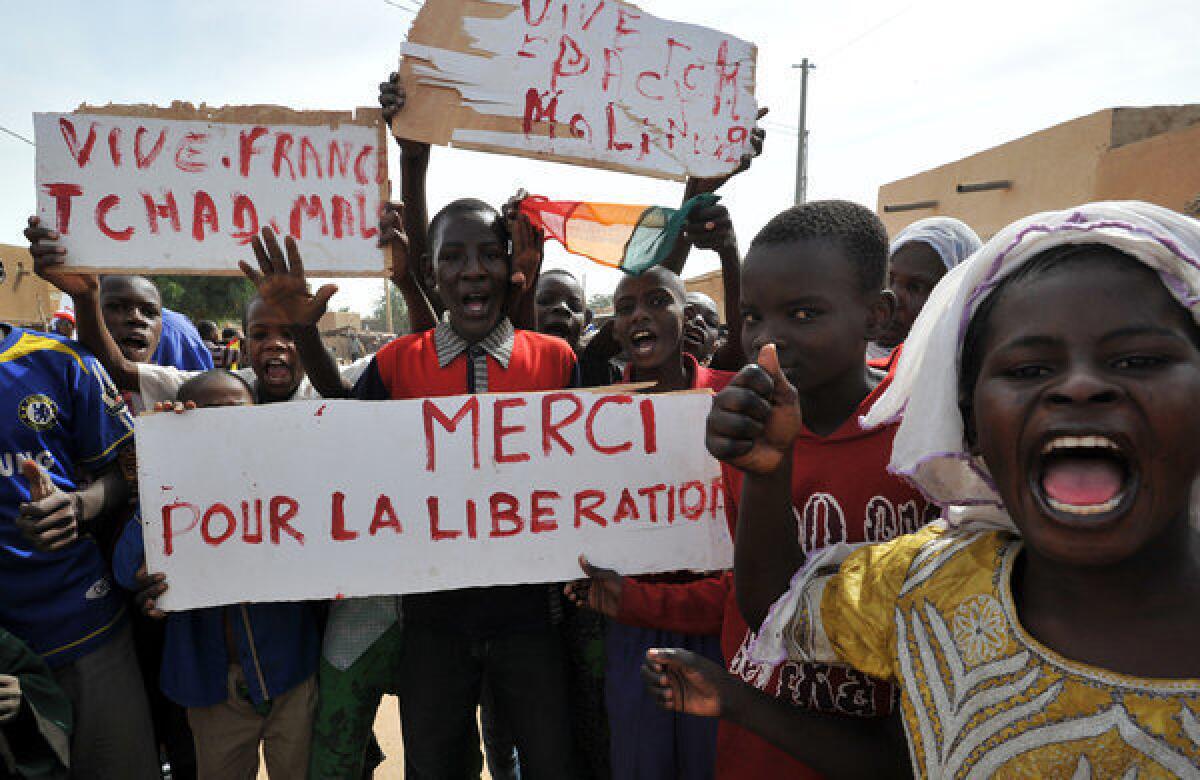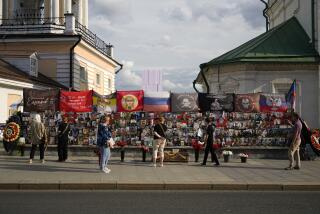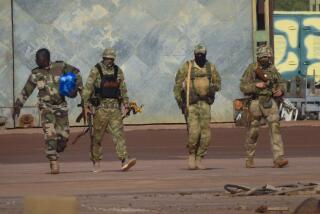France, Western allies likely to be mired in Mali for years

French troops backing a Mali government campaign to retake the northern half of the country from Islamic militants have been cheered as liberators since their convoys rolled into historic Timbuktu this week and hundreds of paratroopers dropped from the sky to block the occupiers’ escape.
As villagers celebrated with dance, song and cigarettes -- all banned by the fundamentalist invaders over the last 10 months -- French President Francois Hollande proclaimed his troops’ intervention a success and hinted that the task of sweeping out the last of the Al Qaeda-aligned militants would soon be handed over to African forces.
The international community is now scrambling to bolster the French-Malian battle to deny the militants a foothold in North Africa from which they could plot and carry out terrorist attacks: Western nations on Tuesday pledged more than $450 million in financing for a planned African-led contingent. Japan agreed to pitch in $120 million for refugee relief. Germany has promised more help transporting French troops to the battlefields, and Britain announced that it would send 240 troops to train and assist the regional fighters, including Mali’s beleaguered army.
But lessons learned in the Western intervention in Libya less than two years ago caution against a premature retreat by the French and their arm’s-length U.S. and European allies, warn experts on the restive sub-Saharan Sahel region, which spans the breadth of the continent.
While the United Nations has endorsed the plans to deploy 3,300 troops from the Economic Community of West African States, or ECOWAS, those fighters lack training and familiarity with the challenging desert conditions that the veteran militants of Al Qaeda in the Islamic Maghreb navigate with confidence.
As the former colonial power in Mali and much of North Africa, France runs the risk of stirring resentment if it stays too long or appears to be reasserting its authority in the region. On the other hand, the experts say, Paris and its allies shouldn’t leave the newly liberated towns vulnerable to recurring waves of invasion and takeover by militants who are only scattered, not defeated.
“They are going to have to leave some kind of residual advisory effort after the bulk of their combat forces are withdrawn,” said Frederic Wehrey, a senior Middle East and North Africa analyst with the Carnegie Endowment for International Peace. While it would be prudent for France to power down once Malian government control has been restored, he said, trainers and logistical coordinators will be needed to guard against any return of regrouped fighters.
Wehrey said the militants cannot be defeated country-by-country. The region’s porous borders give them free range throughout the Sahel’s archipelago of unstable states, and aggrieved minority tribes provide willing collaborators in their mission of mayhem.
Long-marginalized Tuareg nomads, flush with weapons from Libya, took advantage of a military coup against the government in Bamako last March to seize control of the desolate northern half of Mali. They were then elbowed aside by other, more militant Islamist forces that filtered into Mali after the collapse of Libyan strongman Moammar Kadafi and setbacks in fighting against forces in Algeria, Nigeria and Somalia.
As the militants retreat to the remote desert reaches or escape over unguarded borders, the West has to plan for a “cat and mouse” game of tracking the would-be terrorists and disrupting their operations, said David Ottaway, a veteran Middle East correspondent and now a senior scholar at the Wilson Center international think tank in Washington.
The ECOWAS forces “are not ready to take on Al Qaeda in the Islamic Maghreb. The French are going to have to stay involved, and we’re going to have to get involved in providing intelligence,” Ottaway said of the United States.
Unmanned surveillance aircraft that can track the militants’ movements are going to be essential to denying them a North Africa stronghold, Ottaway said. He pointed out reports from Washington-based intelligence sources this week that a base in Niger, Mali’s eastern neighbor, is on the drawing board to host Predator drones that can follow the flow of troops and weapons throughout the region.
Libya remains a dangerous redoubt of Islamic extremism even 15 months after Kadafi’s demise, mostly because of the failure of Western policymakers to anticipate what would happen after his regime fell, said Russell D. Howard, director of the Monterey Institute Terrorism Research and Education Program and a retired special forces brigadier general. Radical militias that protected the Kadafi regime simply slipped across the unpatrolled southern border, carrying off their replete arsenals to continue the fight elsewhere.
France must maintain a symbolic presence in Mali, but more important than the size is its capability to provide air support, training, logistics, intelligence and especially to track the elusive militants as they move about at night, Howard said.
“Being able to pursue, find and fix at night will be a game-changer,” Howard said of the prospects for defeating the militants in Mali and thwarting their relocation.
But there will be no lasting peace or stability in the region, the general said, as long as the social needs of minority communities are ignored and festering resentments draw them to the opportunistic Islamic extremists.
ALSO:
Egyptian general warns against continued unrest
Dozens of corpses found along river in Aleppo, Syria
Controversial Spanish doctor testifies in huge sports doping trial
A foreign correspondent for 25 years, Carol J. Williams traveled to and reported from more than 80 countries in Europe, Asia, the Middle East and Latin America.
More to Read
Sign up for Essential California
The most important California stories and recommendations in your inbox every morning.
You may occasionally receive promotional content from the Los Angeles Times.











